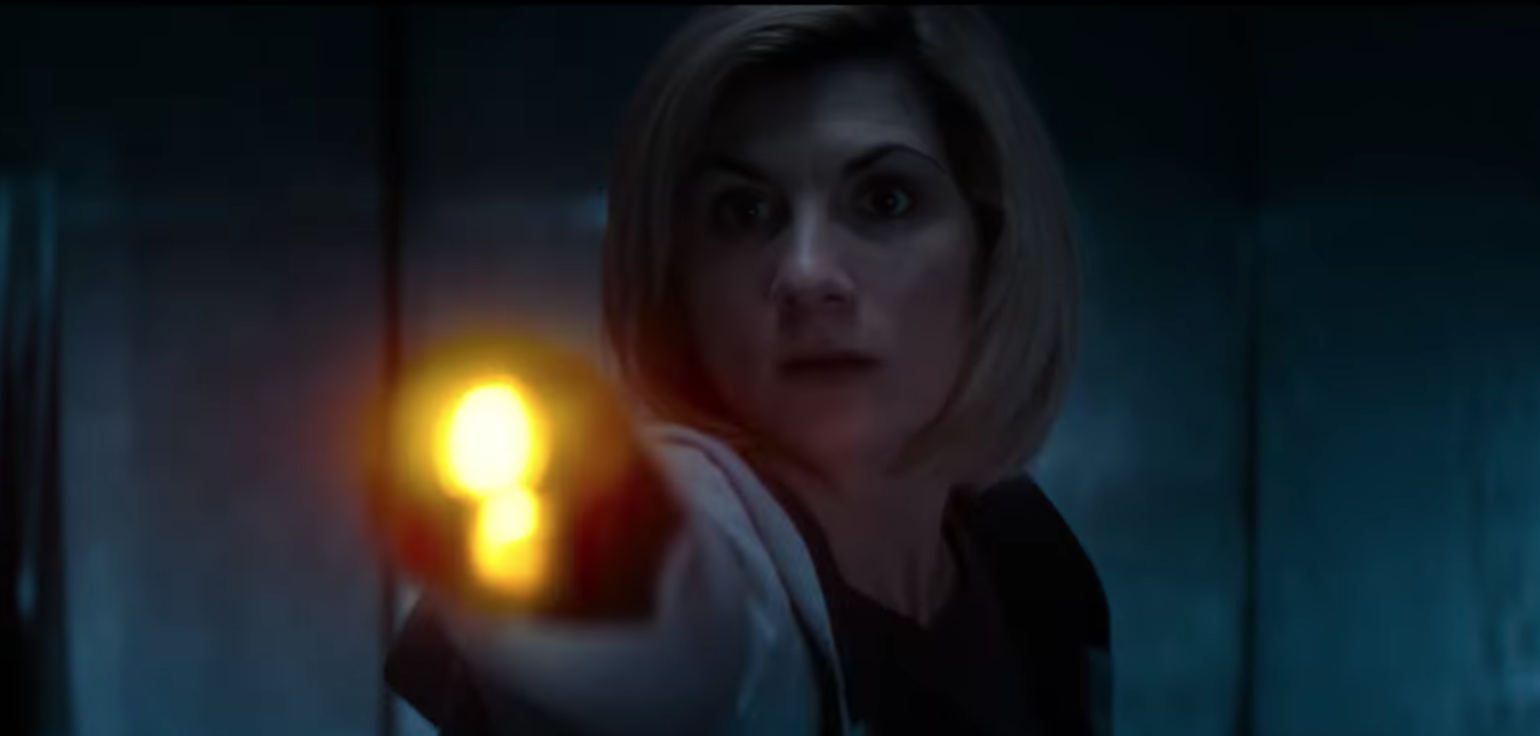Britain’s most famous time traveler fell from the sky once again on Sunday night — and for the first time, it wasn’t a man. Jodie Whittaker made her debut as the Doctor in the first episode of the eleventh series of modern Doctor Who.
Whittaker was announced as the thirteenth Doctor in the summer of 2017. Her arrival is a part of a greater change for the long-running British show, as Chris Chibnall — who worked with Whittaker on Broadchurch — took over for Steven Moffat as the showrunner.
The premiere began with Ryan Sinclair — a new companion played by Tosin Cole — talking to a webcam about the best woman he ever knew. The rest of the cast is quickly introduced, as Sinclair’s grandmother Grace (Sharon D. Clarke), step-grandfather Graham (Bradley Walsh) and former primary school classmate Yasmin (Mandip Gill) find themselves dealing with forces they don’t recognize and inevitably crossing paths with a mysterious woman.
The thirteenth Doctor literally drops in on Grace and Graham as they ride a train under attack from a suspicious alien. Having lost her TARDIS, the new Doctor is still learning who she is as she immediately jumps into action.
Whittaker’s first entrance is spectacular and frantic. Her ability for humor is apparent from her first entrance, and though there is a youthful exuberance, it’s made apparent that Whittaker’s Doctor is just as intelligent — if not more so — than her predecessors. Left without the Doctor’s iconic ship and one of her most iconic tools, the new Doctor constructs a sonic screwdriver from scratch.
Season 11 has already set itself apart from previous years. Filmed in Sheffield, England, there’s an added realism in the way the show is shot, and more effort is spent on the scenery than in previous seasons. It’s not clear yet if this was just part of the introduction and helping to show the new season’s change of pace, but in the first episode it helped contribute to a new feel with a new Doctor.
The premiere wasn’t perfect, however. The episode felt rushed, combining several plot lines and quickly abandoning concepts in order to advance the story. It should be given a pass, though, because the show needed to introduce several new characters, a new Doctor, a primary villain, conflict and a story that can eventually run the length of a season in just one episode. Hopefully future episodes will not feel like they need to accomplish as much.
“The Woman Who Fell to Earth” is a great addition to a storied universe with an immense history. After several months with only one episode — 2017’s Christmas special — Whittaker and Chibnall’s arrival reminds us what’s so great about Doctor Who: It’s ever-changing and evolving.
The show has managed to survive, premiering in 1963 and ran until 1989, revived in 1996 and failed, picked up again in 2005 and has run ever since. Since its inception 55 years ago because — like the Doctor — the show can regenerate. No issues with writing, acting or plot are irrevocable, because the Doctor is strong enough to fix everything and save everyone. The season 11 premiere is an especially poignant reminder of the magic of Doctor Who, because it’s an expansion of not just what the Doctor can do but also who she can be.



